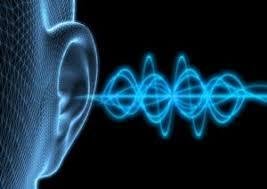Tinnitus Oorsuizen Informatie
There's no definitive cure for tinnitus since it can have various causes and often manifests as a symptom of underlying conditions rather than being a disease itself. However, there are several approaches to manage or reduce its impact:
Medical and Therapeutic Interventions:
Hearing Aids: If tinnitus is associated with hearing loss, hearing aids can amplify environmental sounds, which might mask the tinnitus.
Sound Therapy: Using devices like white noise machines or apps that produce background noise can help mask the tinnitus sound. This might include nature sounds, ambient noise, or even specific tones.
Tinnitus Retraining Therapy (TRT): A combination of sound therapy and counseling designed to help retrain the brain to perceive tinnitus less negatively.
Cognitive Behavioral Therapy (CBT): This form of psychotherapy can help change the way you think about and react to tinnitus, potentially reducing its perceived impact on your life.
Medications: While there's no specific medication for tinnitus, some medications can help treat conditions that might worsen tinnitus (e.g., anxiety, depression). Also, certain supplements like magnesium or zinc have been suggested by some for symptom relief.
Lifestyle and Home Remedies:
Avoid Loud Noise: Protecting your ears from loud noises can prevent tinnitus from getting worse or becoming a new issue.
Diet and Supplements: Some posts on X suggest that dietary changes or supplements like CoQ10, B12, or magnesium might help. However, these are not universally effective, and individual responses can vary widely.
Reduce Stress: Since stress can exacerbate tinnitus, relaxation techniques like meditation, yoga, or even simple breathing exercises might offer relief.
Sleep Management: Ensuring good sleep hygiene can help, as fatigue might make tinnitus more noticeable.
Alternative Therapies:
Acupuncture: Some find relief through acupuncture, though scientific evidence is mixed.
Exercise: Regular physical activity can improve overall health, potentially reducing tinnitus symptoms by reducing stress and improving blood flow.
Important Notes:
Consult Healthcare Providers: Since tinnitus can be a symptom of various conditions, it's vital to consult with a healthcare provider for a proper diagnosis and tailored treatment plan. They might recommend additional tests like an audiological evaluation.
Individual Response: What works for one person might not work for another, so treatments often involve trial and error.
Emerging Treatments: Research continues into new treatments, including potential therapies involving neurotrophins to regenerate damaged auditory nerves.
Remember, while these strategies can help manage tinnitus, they might not eliminate it entirely. The goal is often to make the condition less bothersome and improve your quality of life.
Tinnitus Oorsuizen Informatie
There's no definitive cure for tinnitus since it can have various causes and often manifests as a symptom of underlying conditions rather than being a disease itself. However, there are several approaches to manage or reduce its impact:
Medical and Therapeutic Interventions:
Hearing Aids: If tinnitus is associated with hearing loss, hearing aids can amplify environmental sounds, which might mask the tinnitus.
Sound Therapy: Using devices like white noise machines or apps that produce background noise can help mask the tinnitus sound. This might include nature sounds, ambient noise, or even specific tones.
Tinnitus Retraining Therapy (TRT): A combination of sound therapy and counseling designed to help retrain the brain to perceive tinnitus less negatively.
Cognitive Behavioral Therapy (CBT): This form of psychotherapy can help change the way you think about and react to tinnitus, potentially reducing its perceived impact on your life.
Medications: While there's no specific medication for tinnitus, some medications can help treat conditions that might worsen tinnitus (e.g., anxiety, depression). Also, certain supplements like magnesium or zinc have been suggested by some for symptom relief.
Lifestyle and Home Remedies:
Avoid Loud Noise: Protecting your ears from loud noises can prevent tinnitus from getting worse or becoming a new issue.
Diet and Supplements: Some posts on X suggest that dietary changes or supplements like CoQ10, B12, or magnesium might help. However, these are not universally effective, and individual responses can vary widely.
Reduce Stress: Since stress can exacerbate tinnitus, relaxation techniques like meditation, yoga, or even simple breathing exercises might offer relief.
Sleep Management: Ensuring good sleep hygiene can help, as fatigue might make tinnitus more noticeable.
Alternative Therapies:
Acupuncture: Some find relief through acupuncture, though scientific evidence is mixed.
Exercise: Regular physical activity can improve overall health, potentially reducing tinnitus symptoms by reducing stress and improving blood flow.
Important Notes:
Consult Healthcare Providers: Since tinnitus can be a symptom of various conditions, it's vital to consult with a healthcare provider for a proper diagnosis and tailored treatment plan. They might recommend additional tests like an audiological evaluation.
Individual Response: What works for one person might not work for another, so treatments often involve trial and error.
Emerging Treatments: Research continues into new treatments, including potential therapies involving neurotrophins to regenerate damaged auditory nerves.
Remember, while these strategies can help manage tinnitus, they might not eliminate it entirely. The goal is often to make the condition less bothersome and improve your quality of life.










